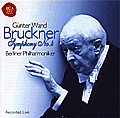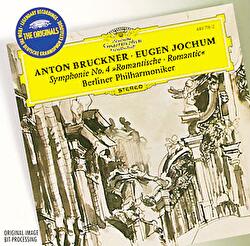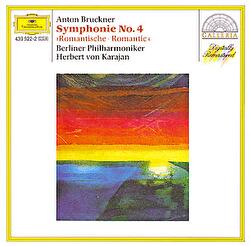


Anton Brucknerís Fourth Symphony, known as the "Romantic", which he composed in 1874 and substantially revised between 1878 and 1880, has always been the most popular of all his symphonies. During Brucknerís lifetime, the Fourth, together with the Seventh, received more performances than any of his other works. The world premiere of the Fourth, which took place on February 20, 1881, in Vienna, was an extraordinary success (especially striking after the failure of the Third). Bruckner considered this to be the "most understandable" of his works. Obviously the popularity of this symphony derives from its well-judged formal structure, its mode of expression, the immediacy of its melodic ideas, and the radiance of its tone colors. In fact, the "Romantic" represents a turning point in Brucknerís symphonic writing, and it is probably Brucknerís most optimistic and radiant work.

 Günter Wand
Günter Wand


Wandís live recording with the Berlin Philharmonic was done with a high level of depth and spirituality. It is the winner of the Gramophone award of orchestral work in 1999. The octogenarian German conductor favors broad tempos, deep orchestral tone, and attention to detail that lends transparency to Bruckner's thick textures. The live performance surely includes a sense of occasion that is often missed in the studio recordings. The sound engineering is outstanding for this RCA CD, with the sound of real blend and balance, never short of its dynamic range.

 Eugen Jochum
Eugen Jochum


Jochum conducts another first-class version of the Fourth Symphony. The reading has plenty of expressive feeling, and a sense of vibrant energy throughout the movements. Jochum reduces the speed as usual, and he brings the score vividly to life, consistently warm, intense persuasive. This performance shows Jochumís special affinity with Brucknerís music.

 Georg Tintner
Georg Tintner


This is a naturally paced and idiomatically felt reading of the Fourth. Tintner's love for the work and its creator shine forth powerfully in virtually every measure of this surefooted account. In every sense, this is a lovingly crafted, benevolent, and visionary performance. Tintner manages to convince his players that his is the right way, and the Royal Scottish National Orchestra plays like the Vienna Philharmonic for him. The recording is surely one of the best of Tintnerís complete Bruckner cycle.

 Herbert Von Karajan
Herbert Von Karajan


Karajanís opening of the first movement has a unique beauty and a greater feeling that can hardly be heard on the other performances. His reading, without lack of drama, emphasizes the warmth and grace of the work, its infinite variety. However, the sound is less spacious than Karajanís other recordings.

Other Recommendations:
Karl Boehm

